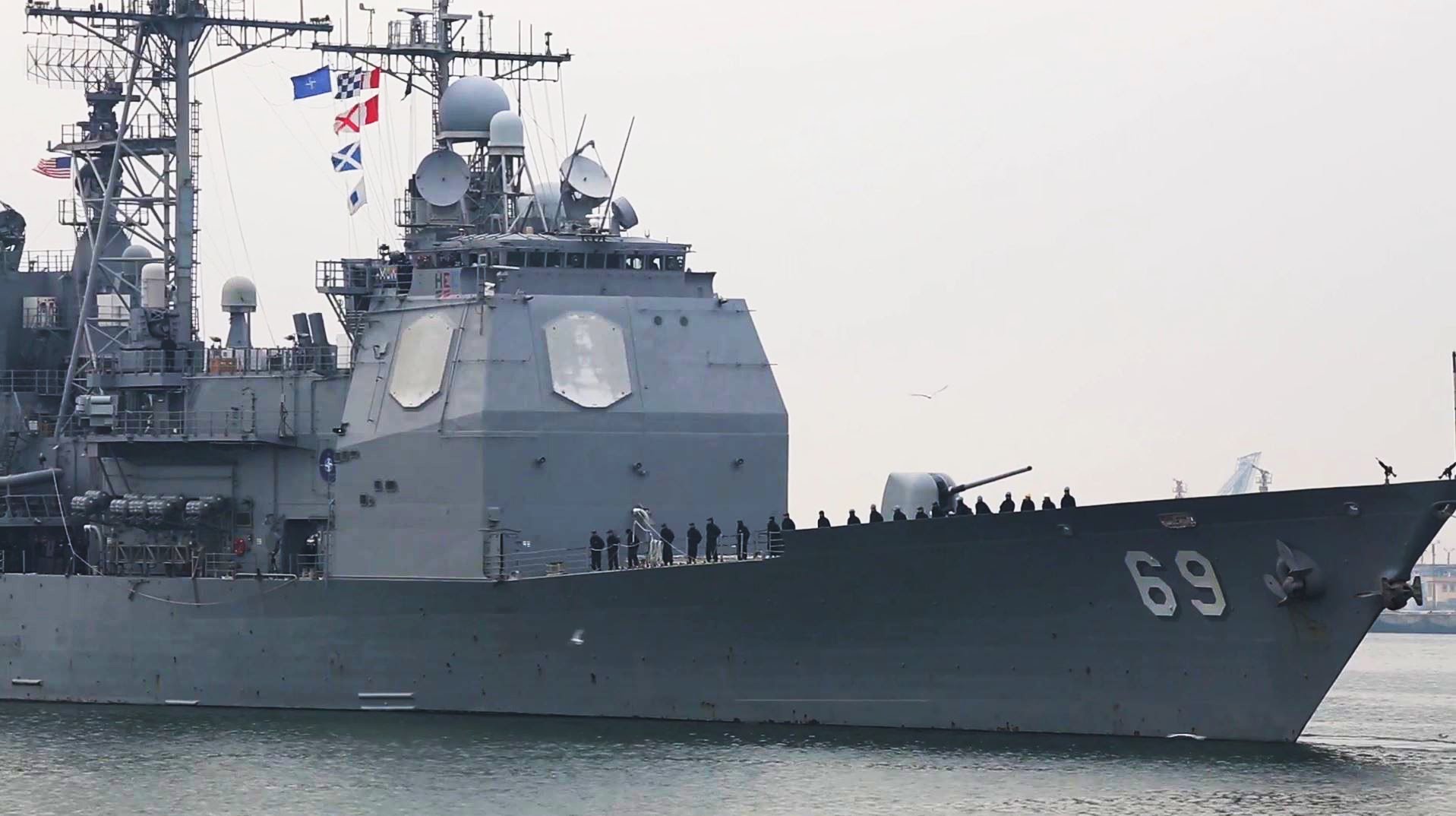
NATO Can Refloat Romania’s Black Sea Naval Initiative (Part One)
Publication: Eurasia Daily Monitor Volume: 13 Issue: 129
By:

It was a summit of modest expectations and modest results for the North Atlantic Treaty Organization (NATO) in Warsaw on July 8–9. These results are of an interim nature: building blocks for further decisions at upcoming ministerial meetings, not waiting until the next summit. The Warsaw results do not, as yet, correlate with the growth in Russia’s capacity to threaten, intimidate, or subvert the Alliance generally and its eastern—now “frontline”—member countries in particular.
NATO resolved, in its Warsaw Summit final communiqué, that with regard to the Black Sea, the Alliance will “support, as appropriate, regional efforts by the Black Sea littoral states, aimed at ensuring security and stability (Nato.int, July 9, para. 23). Furthermore, “Options for a strengthened NATO air and maritime presence will be assessed” (Para. 41).
The mention of a possible air presence is a positive novelty. NATO operates an air policing mission in the Baltic States from the moment of their accession to the Alliance (2004, and doubled in strength since 2014), but NATO has no such air operation in the Black Sea region.
However, the summit delayed the consideration of Romania’s proposal to establish a regular format for joint naval exercises in the Black Sea. The communiqué’s reference to a possible maritime presence is an echo of those discussions; and the reassessment is intended for the Alliance’s Defense Ministers’ meeting in October. The communiqué’s term “maritime” presence stops carefully short of “naval” presence and “multinational naval group,” which Romania had in fact proposed. And NATO-supported regional efforts by the littoral states (as per the communiqué) does not connote the same as efforts by NATO as such (which is the case in the Baltic region).
At his post-summit press conference, NATO Secretary General Jens Stoltenberg announced that NATO military staff would prepare proposals for the defense ministers’ October meeting, “on whether or how to enhance NATO’s forward presence in the Black Sea region, not on land, which will be provided with a brigade, but in the air and at sea” (Nato.int, July 10).
Months ahead of NATO’s summit, Romania had presented Bulgaria and Turkey with a proposal for joint naval exercises in the Black Sea. Such exercises would be conducted in combination with warships of NATO member countries (mainly from the United States but also British and French) that are periodically entering the Black Sea for exercises and port calls, in full compliance with the Montreux Convention.
Romania’s defense and foreign affairs ministers, Mihnea Motoc and Lazăr Comănescu, had discussed the proposal in detail with their Bulgarian counterparts between April and June, in bilateral meetings as well as during NATO pre-summit meetings. The rationale was explained:
“To achieve inter-operability, enabling us to receive allied support when needed. Flying the allied flag to demonstrate that free navigation and free access exist in the Black Sea. Starting with the riparian allied countries, and open to partners Ukraine and Georgia, with participation by non-riparian NATO allies.” It would be a “regular framework for joint naval training and exercises.” “Once we develop it through exercises, we hope for the participation of other allies in these exercises in the Black Sea.” “The main goal of this initiative is to achieve inter-operability among the navies of the three [riparian] NATO allies […[ ultimately under NATO’s umbrella, as all three countries are NATO allies” (Rompres, Mediafax, News.ro, April 4, May 20, June 16, 17).
What remained unclear was (and remains) the exact nature of the link to NATO: whether the proposed framework was to be “regional” (of riparian countries) with intermittent participation of ships from non-riparian allied countries, or was it to be authorized by the Alliance at the political level, at best as a NATO-flagged operation.
On June 16, in Sofia, Romanian President Klaus Iohannis aired the proposal publicly together with his Bulgarian counterpart Rossen Plevneliev. The latter strongly endorsed it, reaffirming the Bulgarian foreign affairs and defense ministers’ preliminary consent (see above). By that time, some Romanian and Bulgarian media were portraying this cooperation proposal in sensationalist terms as a “NATO fleet in the Black Sea.”
The possible lack of a NATO umbrella and the perceived risk of further disturbing Bulgaria’s relations with Russia alarmed Bulgarian Prime Minister Boyko Borissov. He persuaded Bulgaria’s government to revoke the preliminary consent to Romania’s proposal. Still during President Iohannis’s visit in Bulgaria, Borissov appeared at a joint press conference with Plevneliev and Defense Minister Nikolay Nenchev, at which all three called for a time-out on the Romanian proposal.
Romania’s initiative does not presuppose any supplementary ship procurement beyond what has already been approved by each country. Bucharest has approved funding and announced a tender to upgrade its two British-made frigates, with deadlines to complete the work by 2018 and 2020, respectively. It considers acquisitions of multi-functional corvettes under the Romanian armed forces’ modernization program, target date 2027. And it plans to refit its one remaining submarine (HotNews, April 4). The Bulgarian parliament has approved funding for the government’s plan to procure two new, multi-purpose patrol ships with a modular design during a five-year period, replacing Soviet-era vessels. Bulgaria will also refit two old Belgian-made frigates currently in Bulgaria’s inventory, so that they could participate in NATO operations in the next 15 years (Novinite, May 27, June 2).
The Bulgarian government will almost certainly reconsider the proposal after NATO’s summit. Turkey, consumed with challenges in its own neighborhood as well as domestically, has not reacted publicly, one way or the other, to Romania’s initiative. Bucharest will undoubtedly continue working on it and discuss it with Sofia and Ankara, ahead of NATO’s October ministerial.



